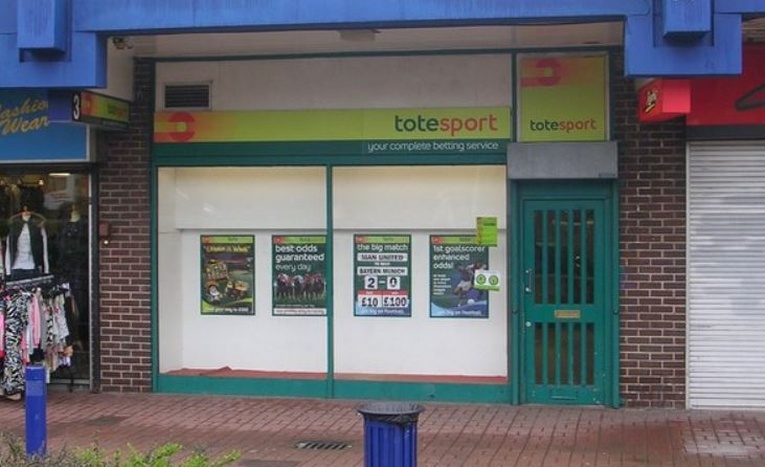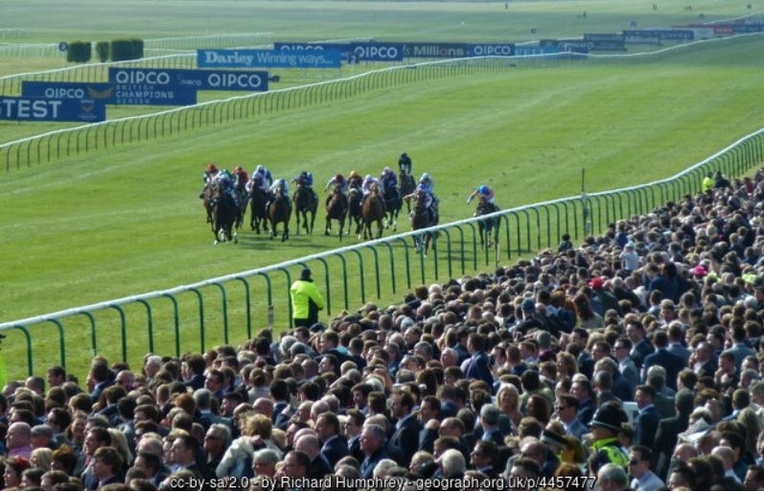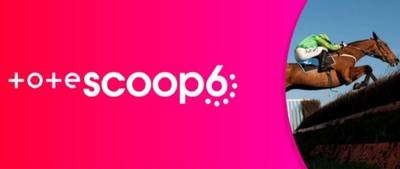
Until 2011, the Tote or Totepool was a state-owned service formally known as the Horserace Totalisator Board. Known affectionately as the Nanny or Nanny Goat in rhyming slang, the service was bought from the Government by high street bookmaker Betfred, though maintained its services on Britain’s racecourses.
Way back in 1928, the Tote was established by an Act of Parliament in order to distribute profits ‘conducive to the improvement of the sport of horseracing’ in a way not being done by private on-course bookmakers. Big race meetings at Newmarket and Carlisle were the first to offer Tote betting in July of the following year.
After the Betting Levy Act was passed in 1961, bookmakers were allowed to open shops around the country. This included the Tote, though they were only allowed to offer the totepool as a dividend, rather than traditional fractional odds. These restrictions were lifted some ten years later however and the Tote went on to have over 500 high street shops employing over 4000 people.
As far back as 1988 there was talk of privatisation of the Tote in parliament, with several bookmakers and individuals making offers to buy it from the government as far back as 2006. None of these bids were successful until Betfred bought the firm in 2011, previous bidders having been rebuffed for not matching the government’s valuation of the service. Despite the Tote moving into private hands, it still retains pool betting as its primary focus and is still the only organisation to do this at Britain’s racecourses, offering race goers an alternative to betting with traditional on-course bookies.
Since 1992 and because of the advent of Tote Direct, people in betting shops all around the country (not just in Tote shops) can access Tote bets such as Placepots and Jackpots with all of that money going into the Tote pool. This has had a great effect on winning amounts and means those who cannot attend race meetings are still involved in pool bets.
Brief Explanation of Tote Betting

As an alternative to offering fixed odds betting like the traditional bookmakers, the Tote works in a similar fashion to a sweepstake whereby the amount paid out is determined by the number of people playing and the number of people backing the winning horse.
So the bookie takes a small cut of the overall pot, and the rest is split between the winners on percentage. So in a situation where there were only 3 winners and the pot was say £10,000, the stakes of each bettor would determine how much of the pot they got.
If the stakes of the 3 winners were £75, £20, and £5, that £10,000 pot would be split so that 75% (£7,500) went to the £50 bettor, 20% (£2,000) went to the £20 bettor, and 5% (£500) went to the £5 bettor. This way, everyone’s winnings are proportional to the amount they stood to lose.
Tote betting can be more profitable than fixed odds betting in certain situations too.
If a horse wins with an official SP of 2/1, this could well have been paid out at only 2.5 (6/4 without the £1 stake) by the Tote because there may have been an unusually large percentage of people in the pool backing that one horse, so the money must be shared between more people.
However on other occasions, that same 2/1 winner may have been paid out at perhaps 3.5 on the Tote, or 5/2 in fractions without the £1 stake, because there may be plenty of money in the pot and not so many people backing this particular horse.
This method of betting means punters could end up with much higher payouts than they would get from a fixed odds bookie, especially if they backed a successful outsider in a very popular race with lots of wagers on it, for example.
It doesn’t always guarantee better winnings than fixed odds but it certainly can do a lot of the time.
Totepool Bets
The Tote offers seven major pool betting options on and off course.
These are:
Placepot
 Operating strictly on the first six races of every British meeting, the gambler selects one or more horses in each race. If only one horse is selected in each race then they pay the stake once, let’s say £2. In this case if they are successful, they will receive two times the final dividend amount which is calculated and announced shortly after the sixth race and based on a £1 stake.
Operating strictly on the first six races of every British meeting, the gambler selects one or more horses in each race. If only one horse is selected in each race then they pay the stake once, let’s say £2. In this case if they are successful, they will receive two times the final dividend amount which is calculated and announced shortly after the sixth race and based on a £1 stake.
If more than one horse is selected in one or more races, the stake multiplies. So, if the gambler would like to pick two horses in race three and perhaps three horses in the final leg of the bet, the equation would be 1x1x2x1x1x3 meaning a total of 6 units, or 6 times the original stake. If successful, the punter will be paid out on how many multiple lines they have actually won, times their stake.
For the bet to be successful to any level, horses must be ‘placed’ in each race according the normal rules of racing, i.e. if there are 1-4 runners then the horse must win, 5-7 runners the horse must finish in the first 2, 8 runners or more in the first 3 and then in the first 4 of a handicap race with 16 or more participants.
Win/Place
 Depending on how much money is in the pool and how many people are backing it, a horse will have a Win or Place dividend which includes the usual £1 stake. If you place a £2 bet on a horse showing a price of 3.46 and it wins, you will be paid out to the amount of £6.92. The dividend for simply being placed is naturally a lot lower than the one shown for a horse to win.
Depending on how much money is in the pool and how many people are backing it, a horse will have a Win or Place dividend which includes the usual £1 stake. If you place a £2 bet on a horse showing a price of 3.46 and it wins, you will be paid out to the amount of £6.92. The dividend for simply being placed is naturally a lot lower than the one shown for a horse to win.
There have been extraordinary instances of short-priced favourites being a larger price to place than they were to win. This happens simply because the betting public assume there will be no point in backing a heavy favourite to finish placed as the price will be too small, however on the Tote that means that the money in that particular pot will be shared out between the few people who decided to take that bet.
Quadpot
 This works the same way as the Placepot, however it covers races 3-6 inclusive.
This works the same way as the Placepot, however it covers races 3-6 inclusive.
It can be added to a Placepot bet, meaning if either of the first two legs of the Placepot have let you down, you will still be in with a chance of winning the Quadpot.
Exacta
 This bet is identical to the Straight Forecast and Computer Straight Forecasts offered by other bookmakers, with the gambler required to pick the first two horses home in the correct order. The dividend though is based on how much money is in the betting pool for the race in question, meaning sometimes it is lower than the forecast but occasionally significantly higher.
This bet is identical to the Straight Forecast and Computer Straight Forecasts offered by other bookmakers, with the gambler required to pick the first two horses home in the correct order. The dividend though is based on how much money is in the betting pool for the race in question, meaning sometimes it is lower than the forecast but occasionally significantly higher.
A Combination Exacta, which is essentially the same as the Reverse Forecast, is offered as well as a Banker Exacta. The latter is a bet in which you name a horse to win for definite, as you believe this one is your ‘banker’, then any number of horses you wish to finish second to it can be named in the bet as well.
Jackpot
 Once again involving the first six races of a meeting, this time just one British meeting per day as opposed to all of them, the participant this time is required to pick all six winners.
Once again involving the first six races of a meeting, this time just one British meeting per day as opposed to all of them, the participant this time is required to pick all six winners.
The meeting in question will be nominated by the Tote and is usually the meeting with most runners and the hardest races to solve.
Should there be no winner of the Jackpot anywhere in the country, which happens regularly, then the pool rolls over into the following day’s Jackpot bet.
Trifecta
 Again, this one is like the normal Tricast bet, the gambler tasked with picking the first three horses in the correct order.
Again, this one is like the normal Tricast bet, the gambler tasked with picking the first three horses in the correct order.
The Tote will not usually nominate races with small fields for Trifecta bets, as it becomes increasingly easy for gamblers to predict the first three home.
Scoop 6
 Run in the same manner as the Jackpot but as a separate bet to it, this one runs only on Saturdays or on busy Bank Holidays. The six races in question are split this time over different racecourses if necessary, with the hardest races to predict the ones nominated by the Tote.
Run in the same manner as the Jackpot but as a separate bet to it, this one runs only on Saturdays or on busy Bank Holidays. The six races in question are split this time over different racecourses if necessary, with the hardest races to predict the ones nominated by the Tote.
There are more rollovers in the Scoop 6 than in the Jackpot and so sometimes winning dividends are incredibly high, into many hundreds of thousands of pounds with the scheme also containing a bonus. The winning gambler will be given a bonus race to predict the winner of the following week, with a further amount going to them if they get it right.
The races chosen are very often large field handicaps shown on terrestrial television with Scoop 6 winners routinely interviewed on air the following week before naming their choice for the bonus race.
Totepool v Fixed Odds Betting
 Offering pool betting rather than fixed odds is a great alternative and something the betting public love when they actually go racing on course.
Offering pool betting rather than fixed odds is a great alternative and something the betting public love when they actually go racing on course.
Pool betting is seen by many as being a fairer way to bet, as the casual gambler doesn’t go in depth and work out a traditional bookmaker’s overround (their margin of guaranteed profit) and therefore sometimes see a horse’s price being shortened believing they are not getting the right value for money.
Backing a horse in the Tote betting pool however always seems fair, as dividends are calculated automatically taking into account the amount of money in the pot and the number of people it will need to be shared by.